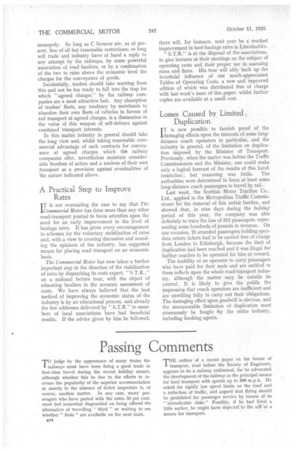Losses Caused by, Limited Duplication
Page 28

If you've noticed an error in this article please click here to report it so we can fix it.
IT is now possible to furnish proof of the damaging effects upon the interests of some longdistance coach operators in particular, and the industry in general, of the limitation on duplication imposed by the Minister of Transport. Previously, when the matter was before the Traffic Commissioners and the Minister, one could make only a logical forecast of the results of this harsh restriction ; but reasoning was futile. The authorities were determined to force at least some long-distance coach passengers to travel by rail.
Last week, the Scottish Motor Traction Co., Ltd., applied to the Metropolitan Traffic Commissioner for the removal of this unfair burden, and showed that, in nine days during the holiday period of this year, the company was able definitely to trace the loss of 312 passengers, representing some hundreds of pounds in revenue. On one occasion, 21 stranded passengers holding opendate return tickets had to be carried free of charge from London to Edinburgh, because the limit of duplication had been reached and it was illegal for further coaches to be operated for hire or reward.
The inability of an operator to carry passengers who have paid for their seats and are entitled to them reflects upon the whole road-transport industry, although the matter may be outside its control. It is likely to give the public the impressiop that coach operators are inefficient and are unwilling fully to carry out their obligations. The damaging effect upon goodwill is obvious, and the unreasonable limitation of duplication must strenuously be fought by the entire industry, including booking agents.




























































































